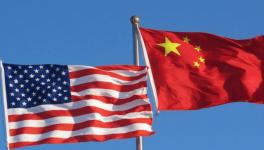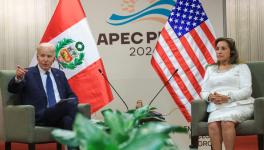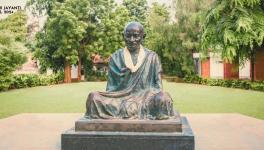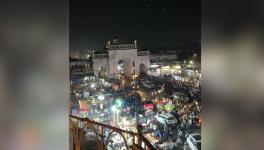COVID-19: Govt Is Blunderbuss, Volunteers Offer Hope

A group of migrant workers is walking almost 500 km back home to Gujarat, left stranded without buses and trains and no work to do. From Varanasi, there is a photograph in a Hindi newspaper of little children sitting around a small heap of grass – that is all the food they have after Prime Minister Narendra Modi, who is also MP of Varanasi, announced on March 24 that the country would go into lockdown mode for 21 days in a bid to curb the spread of COVID-19.
In January, while the virus was still a news item from China, the Press Information Bureau issued an advisory claiming that homeopathy could prevent the infection and unani medicines could treat symptoms. Doctors were appalled and appealed to the people not to believe the government advisory.
The utter lack of scientific rigour, planning and preparation on the part of the Government of India is contrasted starkly by the detailed guidelines issued by doctors who are part of the Jan Swasthya Abhiyan. It is evident to anyone reading the material posted on different websites (when newspapers are not being delivered) that India has a rich pool of talent to draw on – economist Reetika Khera has offered a list of suggestions for what could be done to mitigate the impact of the virus on the economy and aid the poor get through the lockdown.
A report on The Wire, however, indicates that the government's reactions might not be mere incompetence. The Union Ministry of Commerce and Industry had issued orders banning export of protective gear and other medical equipment – surgical masks, gloves, ventilators, etc. on January 31 this year, a day after the first case of coronavirus was detected in the country. This decision was altered on February 8 and exports were allowed. Meanwhile, website Middle East Eye reported that India would be acquiring 16,479 Negrev light machine guns from Israel, at a cost of US dollars 116 million (over Rs 800 crore).
Israel’s Channel 13 reported that PM Netanyahu had sought that India allow export of masks and pharmaceutical raw material to Israel, after that January 31 ban.
Earlier, while negotiations were on for India to join the Regional Comprehensive Economic Partnership (RCEP) with ASEAN, China, New Zealand, Australia, Japan and South Korea, some farmer activists wondered whether PM Modi, when he spoke of doubling the income of farmers, actually meant Indian farmers or the foreign ones.
Also read: Where There is No Doctor to Call
Activists who have closely tracked the agriculture sector now warn that the harvest season has begun; if crop procurement processes of the government are stalled, farmers would be pushed to the brink. Already, there are signs that with transport taking a hit, supply might be disrupted. That might cause prices to spiral.
James Wilson, a government servant in Kerala, who kept close tabs on all data released by the government in the wake of demonetisation in 2016, is busy gathering data from the government sites on the number of COVID-19 cases reported each day, and he tweeted about his frustration and says that different sources of data were putting out different figures:
What is amazing is the level of accuracy and attention to detail that volunteers are bringing to different tasks, even as the government blunders along.
The government’s poor planning will affect the poorest. The Economic Survey of 2018-19 estimated that 93% of India’s total workforce is “informal”. The vast majority of the workforce is not part of any licensed organisation that is bound by labour laws. Under a lockdown, there is no employer to keep paying salaries; no insurance cover in case of illness; no pension after retirement. No work means no pay.
Could a strategy for dealing with the situation not have been taken in consultation with the Opposition? Could chief ministers of the states, and the people themselves, not have been taken into confidence and informed that the step was being planned?
My guess is that there was no way such information could have been shared, because the prime minister himself had no plan in place, no assessment of possible outcomes. He was driven by the desire to be seen doing something. Given the urgency to deal with the virus, few are questioning the Constitutional propriety of what PM Modi has done.
Also read: A Lockdown for Ventilators and Hospital Beds
Get the latest reports & analysis with people's perspective on Protests, movements & deep analytical videos, discussions of the current affairs in your Telegram app. Subscribe to NewsClick's Telegram channel & get Real-Time updates on stories, as they get published on our website.























